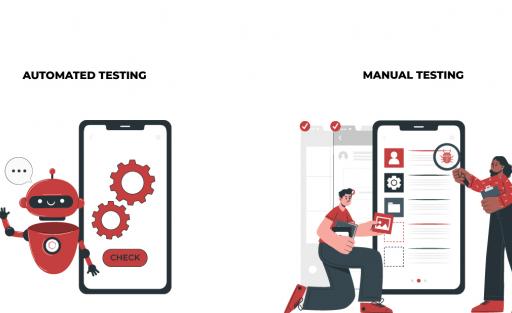Some thoughts on breaking into UX Research field

More and more people keep asking how they start a career or even change a career and break into UX Research. UX Research has gained a lot of momentum during the last decade and it is now widely accepted as one standard and crucial component of professional practice for developing successful digital products and services.
Today there is a high demand for UX Researchers, and this tendency will continue to grow at least for the next decade. As an indication of this, it is projected to increase 20%, with more than 139,200 job opportunities available in the USA only and a national average salary that rises up to $128,682. This is for the US market but there are similar projections for Europe and other parts of the world. This is great news.
Now, let’s take a closer look at some essential issues and questions.
First things first: What is the main mission of UX researchers?
UX researchers work to answer the most challenging questions in design to develop products that satisfy user needs and expectations and meet business goals as well. In fact, to research in the context of UX means systematically studying and reflecting on target people (aka users) to collect and analyze data that will inform the product team. As you probably understand it is all about human behavior. Thus, it is crucial for every UX Researcher to have some key qualities such as curiosity and empathy but also be a team player and communicate effectively to the rest of the team members and stakeholders.
What are the main tasks for UX researchers?
There are many things to say; it is a very demanding job with multiple tasks that require high-level competencies. Nevertheless, to make things simple, everything can be boiled down to 3 key activities:
- Research: Everything starts with the right questions. Research means to learn systematically and therefore we need to ask good research questions. Typical tasks when researching include creating research plans, choosing the right combination of methods and techniques, creating research screeners and study guides, recruiting users, moderating research sessions, etc.
- Data analysis: Usually there is a plethora of data, coming from sources and a combination of research methods. Thus, every UX researcher must be competent in both qualitative and quantitative analysis (although you will find many job posts that target separately quantitative or qualitative UX researchers). Other important tasks relate to interpretation, turning data into insights, and translating those insights into actionable recommendations for the product team.
- Communication of findings: UX researchers must communicate insights across the design and development teams and find proper ways to present research findings to stakeholders and customers. It’s probably the most critical activity. If you can’t communicate effectively then it is quite probable that the product team won't act upon the findings. If this happens, then all the research effort and the intelligence that comes out of it becomes useless.
Some of the methods you will use
A day on the job varies based on the project you work on and the company you are in. Throughout your routine the most common methods you’ll perform are:
- Usability testing
- Interviewing users & stakeholders
- Heuristic Evaluation / UX expert reviews / Cognitive walkthrough
- Observation / note-taking / field research / contextual inquiry
- Diary studies
- A/B testing
- Surveys
- Card sorting and Tree testing
- Competitive UX analysis
Some of the soft skills you need
- Curiosity – the very basic quality you need to have
- Active listening – without it, how can you understand and feel others?
- Adaptability & Flexibility – things change, new tools and practices emerge, you need to adapt and change accordingly your tactics.
- Collaboration/teamwork – this is NOT a one-man show.
- Communication – if you don’t communicate it, nothing happens.
Is there any “appropriate” background to become a UX Researcher?
The easy answer is no. However, if we take a closer look at the description of job posts we can easily identify that most of the job positions require candidates with a bachelor’s degree in Computer Science, Human-Computer Interaction, Psychology, Information studies, Communication, etc. In addition, it's common nowadays to see job postings that require at least 3+ experience of in conducting research in the field. Don't be discouraged though; Having a degree that is not related to the above or not having prior experience doesn't necessarily mean that you can't find ways to develop your UX research skills.
Do you need a portfolio?
The portfolio is not an absolute requirement for UX researchers. However, more recently chances are that you have been asked to have one. In any case, if you create one remember it has nothing to do with the visual portfolios that our fellow designers create. So how to create a UX research portfolio? A practical idea is to structure it with case studies. It is important to describe the journey of your involvement in the whole design & development process.
Include the following:
- The problem or the design challenge your team aimed to solve
- The research process you followed: Focus on “why”, justify the methods and the tools you used. Include some info about the recruitment process, then go on with the collection & analysis of data. and insights
- The outcome and impact of your work
- The team you collaborated with
Don’t forget: Keep it short, 300-400 words should be enough.
Some other simple tips
- Don’t wait to be hired to start doing things: Start research work on your own fictional/fake projects using different approaches and methods. In these fictional projects, it’s ok to call your friends and family to act as participants. It’s better than nothing.
- Attend and contribute to your local UX community/meetups.
- Choose at least 1-2 big events/conferences to attend every year, either online or face to face (hopefully soon) (for example UXPA conferences, World Usability Congress, UXinsight, User Research London, UXR Conference, etc.).
- If you feel like you need guidance don't hesitate to reach out to mentors (senior UX Researchers / UX Research managers) to help you get on track BUT make sure to have clear goals and questions. Always be specific and respect their time. (for instance, check this out UX Coffee Hours).
- Read a lot! And don’t be lazy, start with some good books.
In conclusion,
If you’re a naturally curious person who wants to understand the world and humans, if you like asking questions, a career in UX research could be a good fit for you.
Happy reading and keep on UXing!




